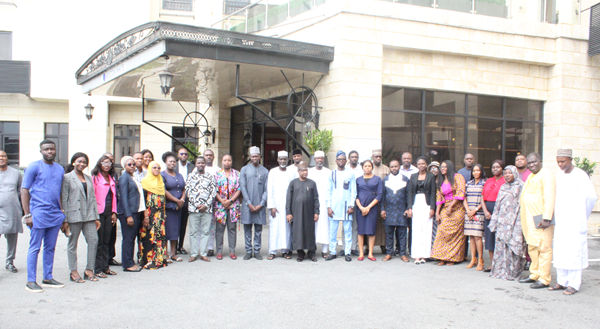
As the African Union (AU) and the ECOWAS regional government explore methods to revitalise the region’s economy and restore lost opportunities and livelihoods, one sector is receiving significant attention: agriculture. The Comprehensive African Agriculture Development Programme (CAADP) aims to end hunger and poverty through agriculture-led growth. It urges African governments to allocate 10 per cent of their budgets to agriculture and rural development, aiming to reduce poverty, increase production, and ensure sustainability. The Malabo Declaration and Post-Malabo Agenda address concerns such as climate change adaptation and land degradation. These initiatives are part of Agenda 2063, a blueprint for a prosperous Africa.
Climate change and agriculture are inextricably linked, with agriculture accounting for 19 per cent of total carbon dioxide emissions (9.9 billion tonnes per year). According to the World Bank (2020), climate change could reduce grain output in Sub-Saharan Africa by up to 25 per cent by 2050. Extreme heat and droughts currently impact 80 per cent of the region’s agricultural land, with countries in the Horn of Africa, such as Djibouti, Eritrea, Ethiopia, and Somalia, experiencing severe consequences. In 2020, floods in East Africa displaced about 1.5 million people and destroyed large areas of cropland. The African Development Bank (2020) also forecasts that if no action is taken, climate change could cost African nations up to 15 per cent of their GDP by 2030.
To address these challenges and manage the declining agricultural yields caused by the climate crisis in Africa’s low-income communities, stakeholders are navigating institutional obstacles. For instance, from August 21 to 22, 2024, Sahel Consulting, Agriculture and Nutrition Limited, and the International Centre for Tropical Agriculture held a two-day workshop in Abuja to improve early warning system operational governance, align national early action systems, and strengthen stakeholders’ analytical capacities in climate change. The workshop aimed to identify and assess alternative Climate Information System delivery options from key stakeholders, analysing their current and future needs in Nigeria’s agriculture and food systems.
Additionally, the workshop facilitator and the representative of the International Centre for Tropical Agriculture noted that this programme offers the highest return on investment among stakeholders and small-scale farmers in Nigeria. Through enhanced stakeholder analytical capacity, it can strengthen Nigeria’s agricultural resilience to climate change, expand capacity to support locally tailored climate analytics and information services, align national early action infrastructure for better impact, and improve early warning systems operational governance through interagency cooperation. Early warning helps farmers mitigate risks and adjust to changing conditions, particularly in Nigeria, where agriculture is highly vulnerable to the effects of climate change.
Given the overwhelmingly positive outcomes of the workshop, stakeholders in Nigeria and across Africa cannot afford to ignore the significance of urgent actions and effective Early Warning Systems Training. These are crucial for increasing the resilience and adaptation of vulnerable communities to climate change by providing critical meteorological information, enabling pre-emptive actions, informed decision-making, and the protection of agricultural livelihoods. Nigerian and African governments should fully integrate effective early warning systems and capacity-building as a fundamental response to climate change mitigation efforts. Change starts now. Get involved—every small action matters.
Martins is a communications expert with Sahel Consulting, Agriculture and Nutrition Limited, Abuja. He can be reached via comrademartinsaban@gmail.com.

